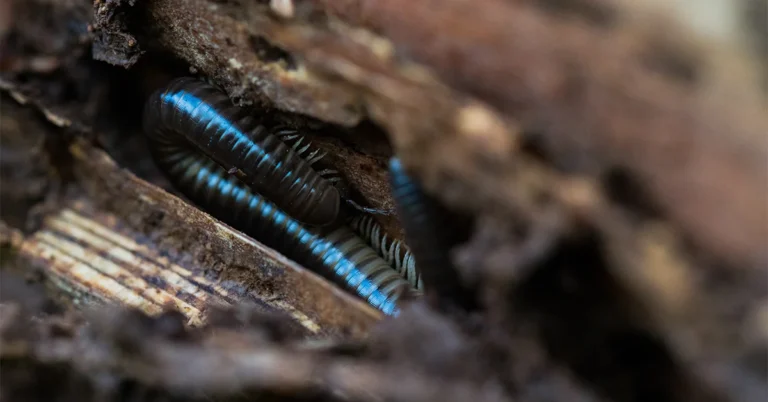Centipedes can be a creepy and unwelcome surprise in any home. These multi-legged arthropods often find their way indoors, especially in damp and humid environments. While many people resort to sprays, traps, or calling pest control professionals, there’s a surprisingly simple and effective tool that many overlook: a dehumidifier. In this article, we’ll explore why a dehumidifier for centipedes is your best pest control ally and how it can help you keep your home dry, comfortable, and centipede-free.
TRENDING
Maximize Shoulder Gains By Focusing On Side Delts
Understanding Centipedes And Their Habitat
Before diving into how a dehumidifier can help, it’s important to understand what attracts centipedes to your home in the first place.
What Are Centipedes?
Centipedes are fast-moving, many-legged creatures that thrive in moist environments. They are predators, feeding on insects, spiders, and other small pests. Although centipedes are not harmful to humans in most cases, their bites can cause discomfort, and their presence often signals a moisture problem in your home.
Why Do Centipedes Like Damp Places?
Centipedes need moisture to survive. Their bodies can easily dry out, so they are naturally drawn to dark, damp places like basements, bathrooms, and crawl spaces. Areas with high humidity levels provide the perfect environment for centipedes to live and breed.
The Link Between Humidity And Centipede Infestations
Centipedes are moisture magnets. If your home has high humidity or persistent dampness, you’re essentially inviting them in.
How Humidity Affects Centipede Behavior
- Survival: High humidity helps centipedes stay hydrated and active.
- Breeding: Moist environments are ideal for centipede eggs to hatch and for young centipedes to thrive.
- Prey Availability: Dampness also attracts other insects, which are food sources for centipedes.
This makes controlling humidity a critical step in managing centipede populations.
Why A Dehumidifier Is Your Best Pest Control Ally
If centipedes are attracted to moisture, then reducing humidity is a natural way to make your home less hospitable to them. This is where a dehumidifier becomes an essential tool.
How Does a Dehumidifier Work?
A dehumidifier pulls excess moisture from the air, reducing the overall humidity level inside your home. By maintaining an optimal indoor humidity level—ideally between 30% and 50%—you create an environment that is less appealing to centipedes.
Benefits of Using a Dehumidifier Against Centipedes
- Reduces Moisture: Removes excess dampness that centipedes need to survive.
- Disrupts Breeding Grounds: Dry environments make it harder for centipedes to reproduce.
- Limits Prey: Dehumidifiers also help reduce other moisture-loving insects that centipedes feed on.
- Improves Air Quality: Besides pest control, dehumidifiers improve comfort by preventing mold and mildew.
- Eco-Friendly and Chemical-Free: Unlike pesticides, dehumidifiers don’t introduce harmful chemicals into your home.
Where To Use A Dehumidifier For Maximum Effect
To get the best results in controlling centipedes, place your dehumidifier strategically.
Ideal Locations
- Basements: These are often the most humid parts of a house and favorite spots for centipedes.
- Bathrooms: Moisture from showers and baths creates a breeding ground for pests.
- Crawl Spaces: These hidden damp spots often harbor centipedes.
- Kitchens: Cooking and dishwashing can raise indoor humidity.
Tips for Using Your Dehumidifier Effectively
- Choose the right size: Ensure your dehumidifier is appropriate for the room size.
- Regular maintenance: Empty the water reservoir frequently and clean the filters.
- Monitor humidity levels: Use a hygrometer to keep an eye on humidity and adjust settings accordingly.
Additional Pest Control Tips To Complement Your Dehumidifier
While a dehumidifier is powerful, combining it with other practices will enhance your centipede control efforts.
Seal Entry Points
Inspect your home for cracks, gaps, or openings where centipedes can enter. Use weather stripping or caulk to seal these areas.
Keep Your Home Clean and Dry
Remove clutter and keep floors dry, especially in basements and bathrooms, to reduce hiding spots.
Reduce Outdoor Moisture
Ensure proper drainage around your home’s foundation, clean gutters regularly, and avoid overwatering plants near your house.
Common Misconceptions About Centipedes And Humidity
Centipedes Only Come Out at Night
Centipedes are mostly nocturnal but can appear during the day if their habitat is disturbed.
Pesticides Are the Only Way to Get Rid of Centipedes
While pesticides work, they can be toxic and temporary. Managing humidity is a safer, long-term solution.
Conclusion
If you’re tired of finding centipedes scurrying around your damp corners, a dehumidifier might just be the simple, effective answer you need. By lowering indoor humidity levels, you make your home an inhospitable place for centipedes and their prey. It’s an eco-friendly, chemical-free way to protect your space while improving air quality and comfort. Combine it with good home maintenance practices for the best results. So, invest in a quality dehumidifier and say goodbye to unwanted centipede guests for good!
ALSO READ: Easy Tips On How To Clean Weed Pipe Fast And Effectively
FAQs
What is a dehumidifier, and how does it help with centipedes?
A dehumidifier is a device that removes excess moisture from the air. By reducing humidity levels, it makes your home less attractive to centipedes, which thrive in damp environments.
Can a dehumidifier completely eliminate centipedes?
While a dehumidifier significantly reduces centipede populations by drying out their preferred habitats, it works best combined with other pest control measures like sealing entry points and keeping your home clean.
What is the ideal humidity level to prevent centipedes?
Maintaining indoor humidity between 30% and 50% helps prevent centipede infestations by creating a less favorable environment for them.
Are dehumidifiers safe to use around children and pets?
Yes, dehumidifiers are safe and chemical-free, making them an excellent option for homes with children and pets.
How often should I run my dehumidifier to keep centipedes away?
It depends on your home’s humidity level, but running your dehumidifier continuously in damp areas, or using it daily during humid seasons, is recommended to maintain optimal dryness.

